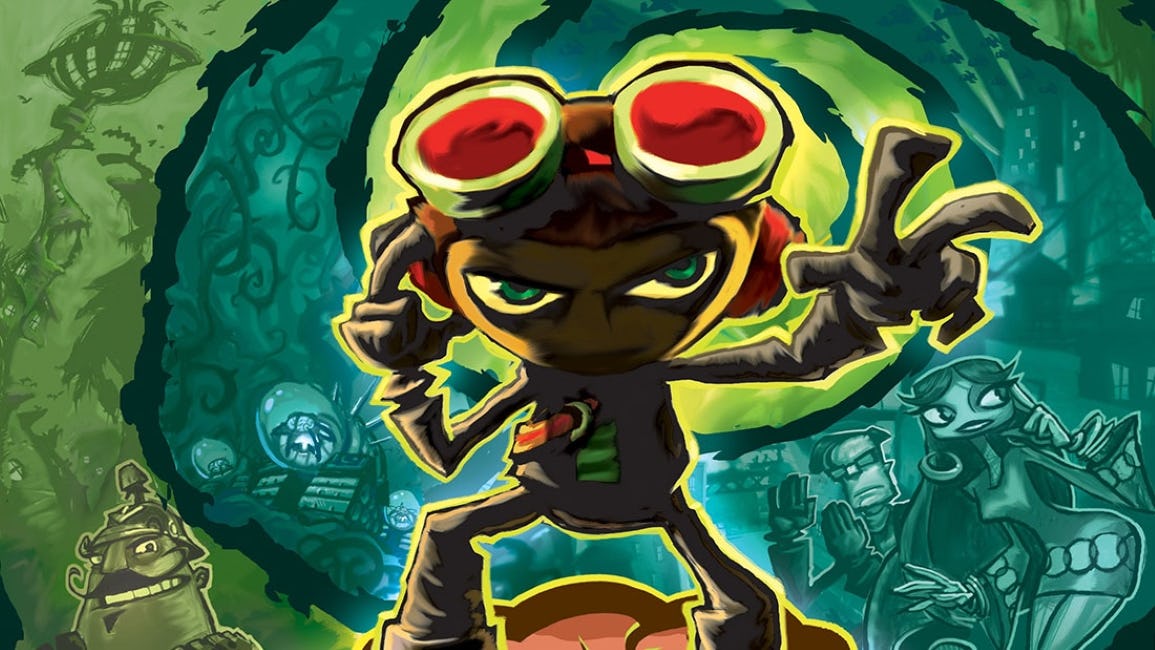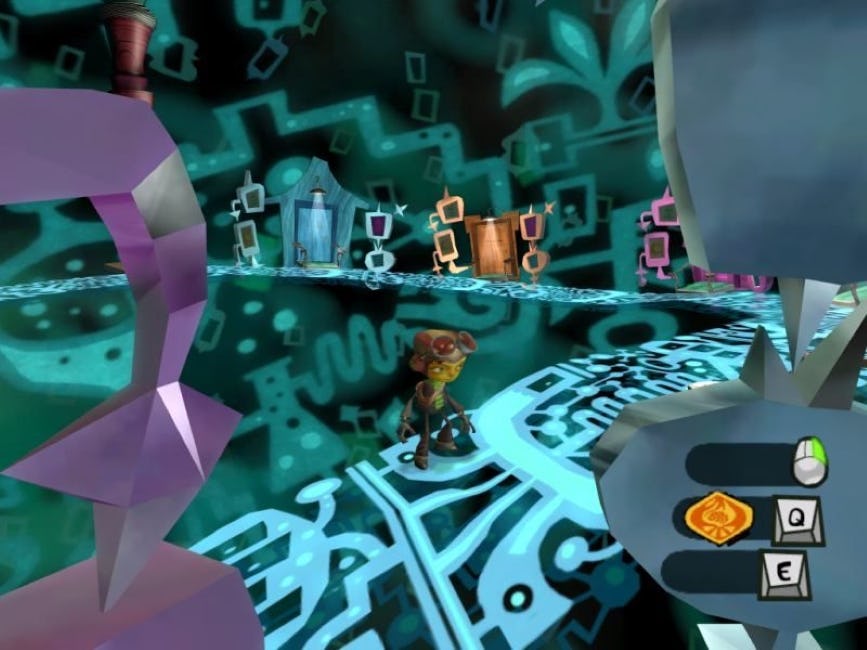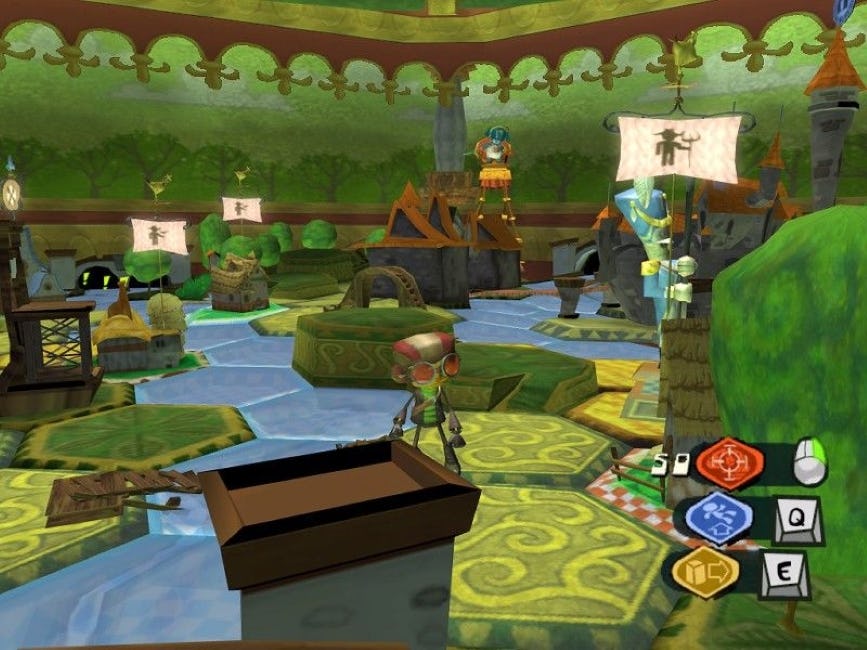
Imagination is a funny thing. We all have it, but for many of us its primary function is to produce anxiety. For a few intrepid creators, imagination is a wellspring of art and inspiration. We revel in their movies and video games. Imagination is widely celebrated for what it does for us, but rarely do we get to celebrate it for what it is. It’s tough to capture the inner workings of the human mind, let alone turn them into a genre-defining game that inspired creators for generations. But 20 years ago, Double Fine Studios did just that.
Psychonauts launched in 2005, but it didn’t set the sales charts ablaze. In fact, it teetered on the edge of commercial obscurity. But in the years since, it’s become one of the most beloved cult classics in video game history. Fans and critics alike point to its boundless creativity, emotional depth, and surreal design as a trifecta of near-perfection. It’s a platforming collect-a-thon in the vein of Jak and Dexter, but loaded with empathy and rich metaphors alongside the manic Saturday morning energy you’d expect.
Psychonauts is a Tim Schafer joint. If you aren’t aware of his work, Schafer earned a reputation for his irreverent writing at LucasArts where he helped define ‘90s adventure games with legendary titles like Grim Fandango and Full Throttle. He left LucasArts to found Double Fine in 2000 and Psychonauts was the studio’s debut. It is arguably the purest distillation of the studio’s signature style, a Klasky-Csupo-esque vibe surrounding incredible level design and compassionate character work.
Set in a psychic summer camp, Psychonauts follows Razputin “Raz” Aquato, a kid with psychic abilities who wants to learn how to become a Psychonaut—a sort of paranormal secret agent. As Raz keeps training psychic mishaps keep occurring, revealing a potential conspiracy he uncovers as he interacts with more and more characters. These interactions involve him literally entering their minds, allowing the art direction, mechanics, and narrative tone to shift wildly from one stage to the next. From pastel-colored, conspiracy-fueled suburbia in “The Milkman Conspiracy” to the twisted, theater-themed mental landscape of “Gloria’s Asylum,” Psychonauts transforms psychological trauma into tactile, navigable spaces.

Few games at the time (or since) have married gameplay and narrative so seamlessly. These mindscapes were more than just metaphorical set dressing, they were interactive character studies. Level design became a narrative device. Mental health struggles were literal obstacles to be overcome. Yet Psychonauts never loses its optimistic perspective, and remains kind, heartfelt, and funny throughout. It was a masterclass in tone, achieving emotional resonance without slipping into melodrama.
Behind the game’s innovative design was a team of passionate developers who poured their creative energy into a title that constantly subverted expectations. LucasArts veterans worked alongside new talent and brought an indie spirit to a big-budget game. This was a pre-Steam, pre-Game Pass era, when mid-tier games struggled to find footing, but Psychonauts refused to conform. That same rebellious energy would later define Double Fine as a studio that championed creative risk, narrative richness, and artistic diversity.

Though Psychonauts sold poorly upon release, its critical acclaim and fan fervor never waned. Over the years, it found new life on digital platforms, becoming a fixture on “Best of All Time” lists and earning renewed appreciation from new generations of players. It also helped pave the way for crowdfunding in games; when Psychonauts 2 was announced in 2015, it raised over $3.8 million via Fig, showcasing just how loyal and passionate its fanbase had become. In 2019, Microsoft acquired the studio to develop content for Xbox and Game Pass.
The legacy of Psychonauts is impossible to overstate. It proved that games could tackle mental health with nuance. It reminded the industry that humor and heart weren’t mutually exclusive. And it emboldened a generation of developers to take risks in how they told stories. You can see its DNA in titles like Celeste, Undertale, and even Control — games unafraid to play with perspective, psychology, and emotion.
Psychonauts is an enduring reminder that imagination still has a place in an industry too often fixated on realism. Nearly 20 years later, its brilliance still shines through the fog of nostalgia, not just as a relic of what was, but as a beacon for what games can be so long as we put our minds to it.







